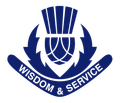LIBRARY REPORT
“READING IS HOW PEOPLE INSTALL SOFTWARE INTO THEIR BRAINS”
A student recently approached me and said that he thought he had never really read a book and that as a consequence his ability to acquire knowledge was not as strong as it could be. He asked me to recommend some books that might get him enthused about reading. He recently told me that he is now starting the Harry Potter series. In the current excitement generated by the possibilities of new technology the importance of reading can get overlooked. At McKinnon we have an extensive selection of fiction books and high interest non-fiction titles. Please ask what your son/daughter what they are reading. If they are not reading, discuss the importance of reading: Read, Know and Grow!
“IT’S A DIGITAL WORLD”
This was the title of a recent conference organised by SLAV (The School Librarians Association of Victoria). Recognising that digital literacy is now almost important as Literacy and Numeracy the conference looked at what it meant to be a learner in the 21st Century. The keynote address was given by Marco DiCesare, a former teacher librarian and current principal. His address started off with images of libraries where entire collections of books had been removed (i.e. large empty rooms). This was naturally greeted with sadness by all the librarians present! He emphasised that this was not the way to go and went on to talk about how vitally important the library is to the school community and gave advice to the librarians present. The library should be a hub for learning, a one stop shop that met student needs. He noted how silence had been replaced by “collaboration and knowledge co-construction”.
Libraries support the curriculum and students who want something generally end up going to the library which in turn builds relationships. His advice also included making the library a comfortable space and protecting it from being used for various non-library functions. I would like to think the McKinnon library does all those things.
Digital literacy was also discussed in terms of a digital “native” versus a digitally “literate”. A digital native being some-one who knows how to use a device, how to use technology and is a consumer in the digital world. A digital literate person knows why to use technology, how the technology works and is a contributor in the digital world.
The future of learning was glimpsed with a workshop on augmented and virtual reality. With the use of the Google cardboard VR headset and a smart phone participants were able to have a cheap virtual reality headset. Various texts were also used that “came alive”. I am sure we will hear more of this emerging technology.
Russell Absalom
Resource Centre Manager

